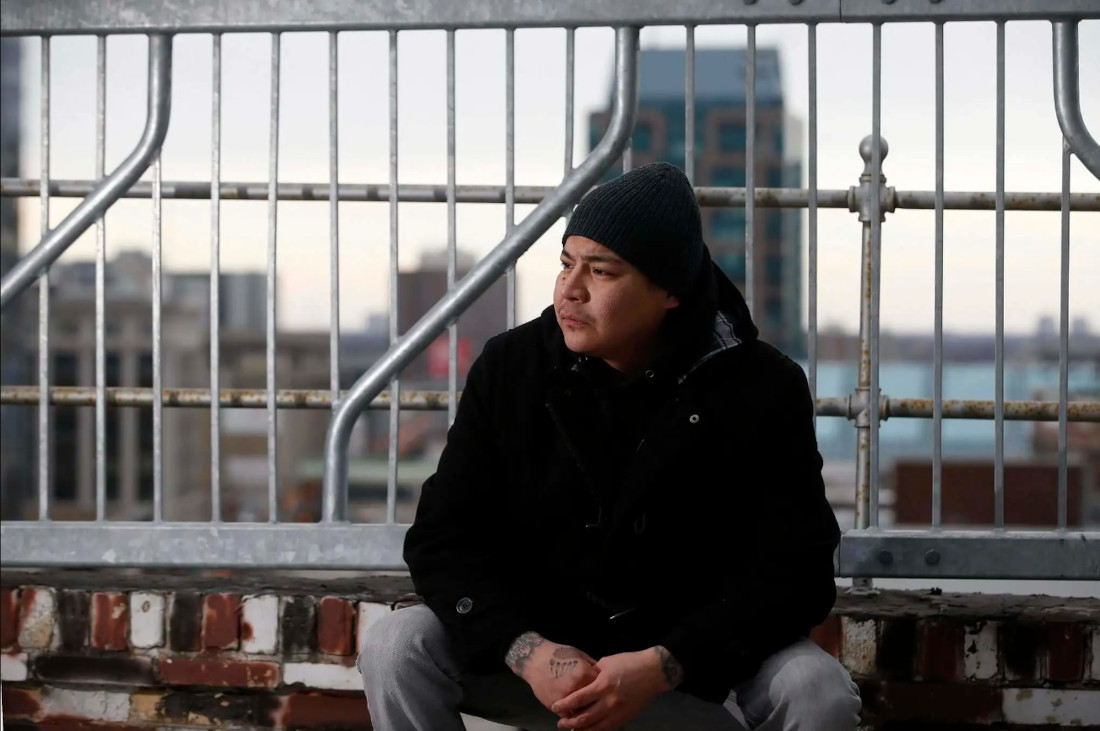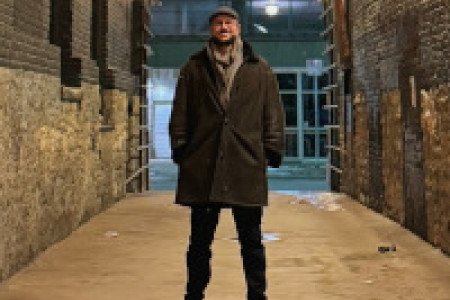The Uniter Speaker Series presents Ryan Beardy
Indigenous men in the inner city, on healing and connection
On Thursday, Nov. 10, local activist and mentor Ryan Beardy will be our featured speaker, discussing issues of colonization and Indigenous men. This free event is at the West End Cultural Centre at 6 p.m. and will also be live streamed at facebook.com/theuniter.
Ryan Beardy knows there’s a lot of work to be done to decrease the stigma that Indigenous men face. He’s experienced the impact of his identity firsthand.
“Indigenous men are seen in society as creatures, or seen as scary. I can’t tell you how many times someone walked across the street to avoid me or just look(ed) the other way. When you add long hair to that, you add tattoos to that, it’s tough. I think there’s a lot of demonization to that.”
Beardy hopes his story and work as a mentor can help young men overcome patriarchal and misogynistic myths about what manhood is and isn’t.
“I spent a large portion of my life in gangs. I’ve spent about 10 years in prison. I’ve spent a lot of time subscribing to patriarchy, to misogyny, to these colonial brought-upon downfalls of manhood in an Indigenous context. I didn’t understand that until I was already in prison, as a result of drugs, gangs, violence and myths of the scary Indigneous male.”
Beardy says the intersection of issues that Indigenous men seek to heal from often have historical implications rooted in colonialism.
“A lot of issues ... have to do with underlying mental-health issues, addictions, traumas. We know that all these issues intertwine. Not to blame alcoholism or trauma specifically, but there are greater issues at play here and issues that have caused us to be here.”
Beardy points to the Sixties Scoop and residential schools as among the largest factors for some of these issues.
“How many mothers cope with wine in their kitchen for everyday stressors? Imagine your family being completely disconnected and your children being ripped from you, and there’s nothing you can do. For that parent to deal with alcoholism, if we look at it through that context, we begin to understand.”
When historical trauma is combined with the impacts of patriarchy and Eurocentrism, the resulting toxic masculinity can be hard to overcome.
“We know these intergenerational traumas have been passed down, and Indigenous men have been passed down this trauma and this alcoholism. At the same time, we’re subscribing to these patriarchal concepts and Eurocentric views of manhood that are very misogynistic and very much counter to the Indigneous worldview of matriarchy.”
Beardy says that historical worldview of matriarchy makes rising narratives that Indigenous men are responsible for MMIWG (missing and murdered Indigenous women and girls) even more harmful.
“We uplift our women in our culture, and for me it took, to be honest, a long time to understand that, and it’s still a struggle everyday to deprogram myself. I’m not perfect. Neither are any of the men out there, but there’s so many men out there doing the work to reclaim that identity, to reclaim that matriarchal system.”
For Beardy, mentorship and education are the biggest factors to help overcome those challenges.
“I think mentorship is the gift that keeps on giving. For me, having healthy role models and having people confront me was good for me. Not only did it change my viewpoints, but (it helped) continue this work and continue this conversation I’m having right now. It really helped, as well, to confront locker-room talk. When it comes to toxic masculinity, the ability to identify it (lets you) confront and address it within your circle. That’s mentorship.”
Beardy also encourages men to open up about their emotions and build their emotional intelligence.
“Patriarchy harms men as well, (causing) us to sabotage ourselves and sabotage each other to ‘save our manhood.’ Men suffer in silence and die in great numbers. When you connect sharing feelings with weakness, it makes it even harder to share your feelings.”
Building a better understanding of what being a man can be and what positive masculinity is is a process, but according to Beardy, it’s one well worth the work.
“It’s accountability. It’s being able to talk about your emotions and having emotional intelligence, being in touch with your feelings and how your values and viewpoints connect to your actions and ultimately your consequences. It’s about being vulnerable but also being brave."
The positive impacts don’t stop short of oneself, but also for others around you.
“For me, being in touch with my emotional self helped me connect with my son, my daughter, the mother of my children and all the people around me. Healthy masculinity is about addressing yourself and knowing you’re not perfect but learning from your mistakes and being a better person.”
To hear more from Beardy, attend the Uniter Speaker Series Event.
Published in Volume 77, Number 09 of The Uniter (November 10, 2022)







